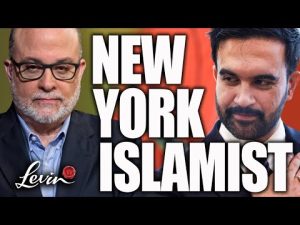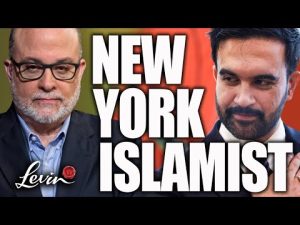Dave Rubin’s recent conversation with former Australian deputy prime minister John Anderson laid bare a truth too few in the establishment want to admit: young people are tuning out the mainstream press because it has lost credibility and courage. The wide-ranging interview, released November 1, 2025, captures how a generation hungry for honest, long-form discussion is migrating to independent platforms that will actually let ideas breathe.
Anderson laments the fading of the old Crocodile Dundee spirit — a blunt celebration of toughness, self-reliance, and common-sense patriotism — replaced by a cultural comfort that leaves nations brittle. He warns that Australia’s traditional deference to authority and an over-reliance on managerial elites have dulled civic muscle in ways Americans should watch closely.
The human cost of cultural softness shows up in the crisis of young men searching for meaning amid rising mental-health struggles and social atomization. Anderson and Rubin point to figures like Jordan Peterson as one antidote: a stark reminder that responsibility, competence, and purpose rebuild spirits and communities when institutions fail.
Most striking is the collapse of trust in legacy media, which has ceded its gatekeeping role by privileging narratives over truth; the result is a diaspora of listeners to podcast hosts who actually answer questions instead of dodging them. The rise of long-form shows — from Joe Rogan to independent interviewers — isn’t a fad, it’s a market correction: people crave unfiltered conversation and aren’t getting it from cable or print.
Anderson doesn’t shy away from hard subjects Americans would rather ignore, warning that changing immigration patterns and imported ideologies have reshaped cities and political culture, sometimes bringing volatile demonstrations and social friction in their wake. These are uncomfortable facts for elites who brand any honest discussion as xenophobic, but glossing over consequences only accelerates civic decline.
In an era of AI disruption and collapsing media trust, the interview makes a blunt case for truth, trust, and slow conversation as the scaffolding of a functioning republic. Long-form dialogue and platforms that tolerate disagreement are proving essential to reconstructing shared realities when official institutions refuse to self-correct.
What emerges from Rubin and Anderson’s exchange is a clear conservative diagnosis: nations survive when they teach responsibility, demand assimilation, and cultivate leaders who will make hard choices rather than pander to feeling. This is not nostalgia for its own sake; it is a practical blueprint for restoring resilience and liberty before the next generation’s character is lost to comfort and convenience.







